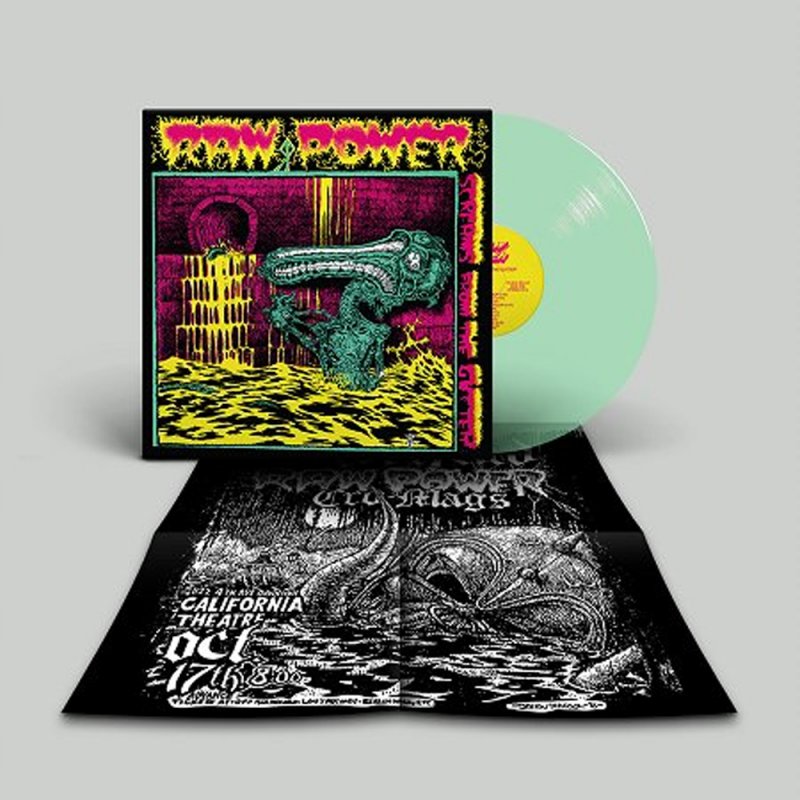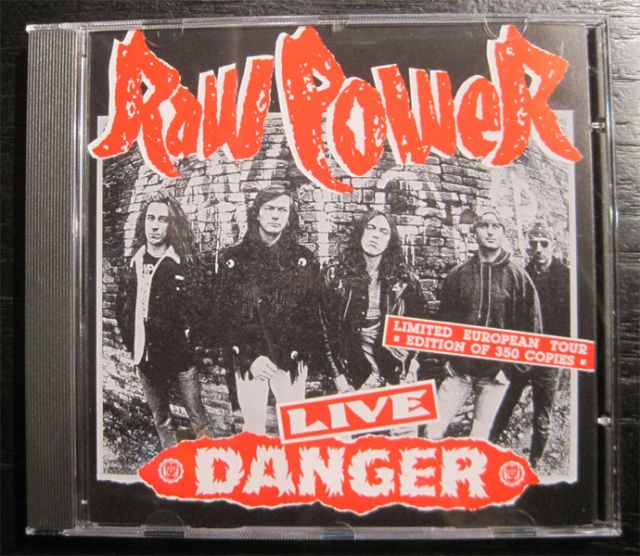

It was together kind of part of 9th grade for me, then I kind of got in a lot of trouble and went to juvenile home, and so then the band kept on going, and it went through a few incarnations, and then finally when I was in 10th grade, 10th going into 11th, kind of the end of it, if you will, was when Ron played bass in the band. K: Ron played bass in that band, did he not? I played with guys in garages and stuff, at parties and so on, but that was my first real band. I put that together with Scott Richardson I guess I was in 9th grade when we did that.

K: Were you in bands before the Chosen Few?
RAW POWER ALBUM HOW TO
So I learned how to play all that stuff and about that time, the Beatles broke and so I was learning all that stuff, and it progressed from there into bands. In terms of songs, I guess the Beach Boys, all the typical teenage song guys, the Ventures and all them.

In those days, that was a pretty broad brush in terms of music. He showed me a lot of stuff, so I rapidly got influenced by all the Detroit guys. And his younger brother was a good guitar player too, and we used to hang out and play a lot. When I was in 8th grade, I moved to Michigan, and it turned out I moved next door to a family the oldest son of which was in a folk music band, a la the Kingston Trio or whatever in those days. I just tried to learn how to play back in those days. K: What were some of the influences you had when you started playing? I was just in an environment that was a lot different than I ended up with, but pretty musical guys. Some of those guys could really play guitar. So the guys that could show you how to play around there all played country and western music. I guess that's when I first started out, and at that time, I used to live in Oklahoma. The strings were sticking up about two inches above the frets, and it was a real challenge to play it. J: I was about 6th or 7th grade when I got my first guitar. J: I was born outside of San Antonio, in a little town called Castroville. James graciously consented to break his silence on April Fool's Day, 2001, joining us at the Bar from his California home to provide his insights and perspectives on the Stooge saga. These days, he makes his living in the electronics industry, and has logged a couple of decades far from the rock'n'roll circus, in the pristine corporate world of California's Silicon Valley. Following the Stooges' dissolution in 1974, he soldiered on with Iggy through the "Kill City" album before putting down his guitar to start a career as a recording engineer and take his degree in electrical engineering, resurfacing briefly to produce what many consider the Pop's last album of merit, 1979's "New Values."įor the last couple of decades, he's been an elusive figure.the only one of the principal surviving Stooges not interviewed by Legs McNeil and Gillian McCain in their research for "Please Kill Me," he appeared briefly in the segment of VH-1's "Beyond the Music" devoted to Iggy, but other than that.silence. Later years have seen the release of a plethora of rehearsal, demo, and live recordings of that seminal band, which have only broadened and deepened the extent of Williamson's accomplishment. James Williamson staked his claim to rock'n'roll immortality based on just eight songs, but what songs they were.the ones comprising Iggy & the Stooges' epochal 1973 "Raw Power" album, still cited as a prime influence by purveyors of Rock Action from Stockholm to Seattle to Sydney. James Williamson in 2011 - Robert Matheu photo


 0 kommentar(er)
0 kommentar(er)
